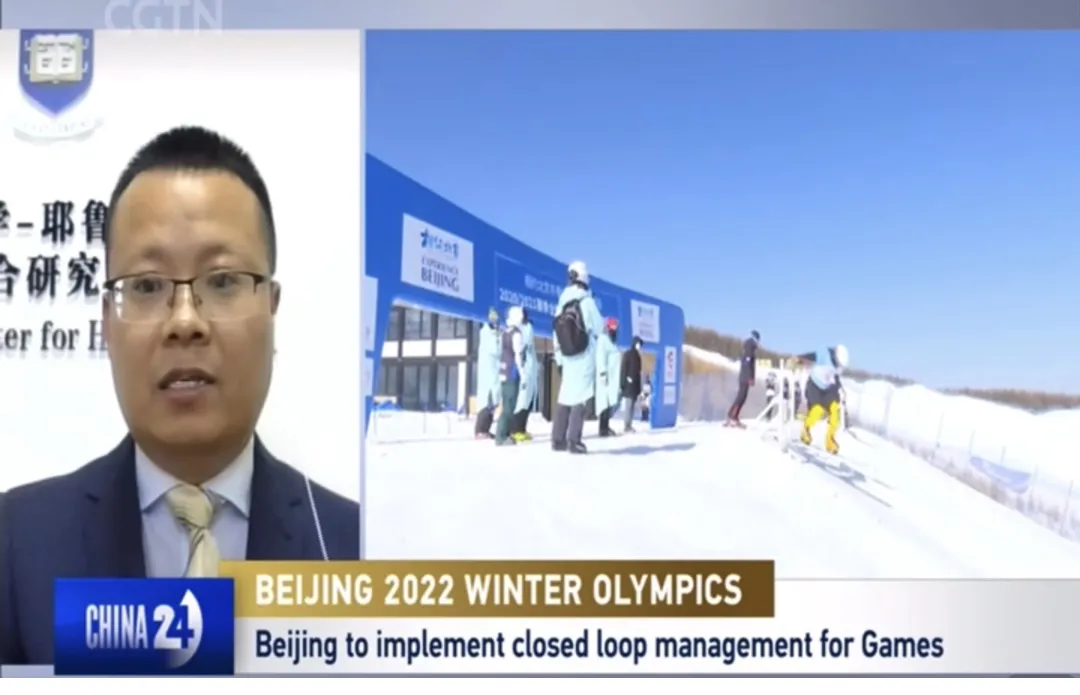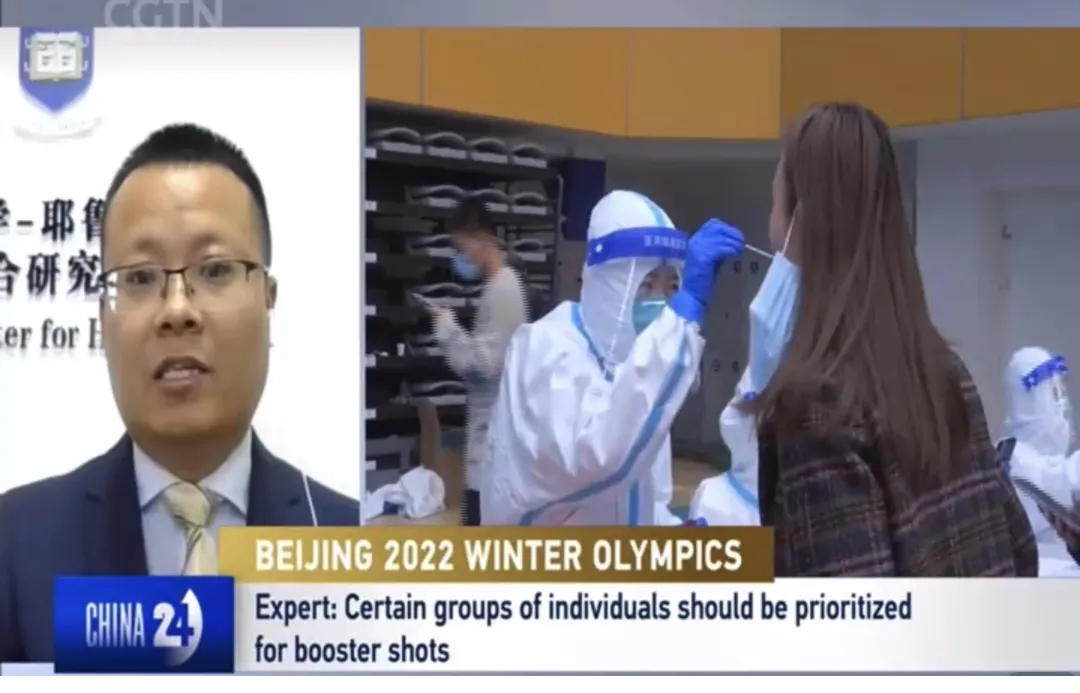上海交大赵大海接受央视专访:全程闭环管理是北京冬奥会疫情防控的首要原则
上海交通大学国际与公共事务学院教授、博士生导师,上海交通大学-耶鲁大学卫生政策联合研究中心执行主任赵大海,自新冠肺炎疫情暴发以来,对于新冠疫情暴发、防控以及卫生政策第62次接受中央电视台专访,也是第105次接受央视、上视专访。2021年10月25日,赵大海接受中央电视台英语频道专访,在《中国24小时》节目,就北京冬奥会的第一版疫情防控手册以及全国各地最近的新冠疫情局部反弹等相关话题进行了解释和评论。现将访谈内容翻译并摘录如下。

主持人:《北京冬奥会疫情防护手册》强调了闭环管理。请问闭环管理对冬奥会的顺利举办以及运动员的健康保护有多重要?
赵大海:过去一年半多以来的新冠疫情抗击经验充分表明,闭环系统管理是抗击新冠疫情的最佳策略。此外,闭环管理已在一些国际大型活动中得以应用,如中国国际进口博览会。此外,东京夏季奥运会也部分地采用了这种管理方式。所有这些国际大型活动举办的经验证明,闭环管理是冬季奥运会预防新冠疫情的唯一选择和必要条件。如果包括运动员在内的北京冬奥会的所有参与者都严格遵守疫情防护手册的规定,特别是闭环管理和每日的核酸检测,我相信冬奥会的主办方一定可以确保每位参赛者的安全。

主持人:现在离冬奥会的开幕没几个月了,但中国最近的新冠疫情似乎正在逐步严峻。请问政府正在采取什么措施来应对?
赵大海:中国所有地方政府都已具备了应对局部新冠疫情反弹的充足经验。就防控措施而言,我认为各地采取的依然是常规的科学防控措施。具体而言,首先是封闭确诊病例所在的相关区域。比如,北京的相关街道已被封闭。其次,在大数据技术的帮助下,已经隔离了所有确诊患者的所有密切接触者。第三,部分地区如甘肃省嘉峪关市已开展了全民的核酸检测工作。我认为这些防控措施都不是新的举措,但这更能说明中国的各级地方政府已经建立并应用了稳定和科学的策略来应对局部新冠疫情的反弹。进而,各地散在的新冠疫情将在很短的时间内得到控制,一定不会影响冬季奥运会的举办
供稿者:国务学院
日期:2021年10月26日
Dahai ZHAO’s Exclusive Interview with CGTN: A closed-loop management system will be applied as the first principle of epidemic prevention and control during Beijing Winter Olympics
Dahai Zhao, a doctoral supervisor at the School of International and Public Affairs of Shanghai Jiao Tong University and Executive Director of Shanghai Jiao Tong University-Yale University Joint Research Center for Health Policy, has been interviewed by CGYN for the 62st time (the 105st time by CGTN / ShanghaiTV) since the COVID-19 pandemic. On October 25, Zhao commented on Epidemic Prevention Manual (1st edition) for the Beijing Winter Olympics and the recent local rebound of COVID-19 across the country on CGTN “China 24”.
Anchor: Closed loop management is emphasized in the Beijing 2022 handbook. How important is this for the management of the winter Olympics and the protection and health of the athletes?
ZHAO: The experiences of combating COVID-19 in the last more than 1 and a half years have fully shown that the closed loop system management is the best strategy for combating COVID-19. Further, the closed loop management has been utilized in a couple of international large-scale activities, such as China International Import EXPO. In addition, this management was partly used in the summer Olympic game in Tokyo. All these experiences for the international huge activities have shown that the closed-loop management is the only one choice and a necessary condition for preventing COVID-19 in the winter Olympics. If all participants including the athletes strictly obey all rules of the playbook, particularly the closed loop management and the daily PCR test, I believe the Olympic game hosts will guarantee the safety of all participants.
Anchor: China’s latest COVID-19 outbreaks seems to be worsening, just a few months before the winter games. what measures is the government taking to deal with it?
ZHAO: All local governments in China have full experiences to cope with the rebound of the local outbreaks. In terms of the control measures, I think those are the common and scientific combating measures. Specifically, First, lock down all related areas where the confirmed cases are found. For example, the related streets in Beijing have been locked down. Second, all related close contacts have been quarantined with the help of big data technology. Third, the nucleic acid test for all citizens have been conducted in some areas such as Jiayuguan in Gansu province. Fourth, the local governments have noticed all related citizens to obey strict measures to protect themselves. I think the control measures are not new, because the local governments in China have built and utilized the stable strategy to control the local outbreaks. Further, the local outbreaks will be controlled in a very short period of time, and will not impact the winter Olympics.
Contributor: SIPA, SJTU
Date: October 26, 2021

